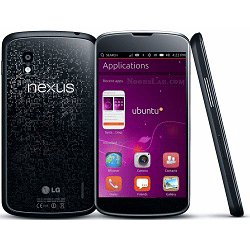When you first pick up a phone with Ubuntu Touch, it will look like a phone with any other operating system. However, within moments, you will start to notice a few key differences like the search box at the top of the screen, and the unlocking feature which is controlled by a right-to-left rather than a left-to-right sweep. Recently released Ubuntu is ready to claim third place behind Android and iOS, the operating system giants of the smartphone world. But the novelty of this Linux-based system may have the potential to propel this operating system into first or second place once the kinks have been ironed out.

Because Google is given a lot of say over how they want Android to work, users can have completely different experiences when using the Android operating system on different phones. Ubuntu wants the same interface regardless of whether a user is holding one of T-Mobile's cell phones in the United States or a different carrier's cell phone in Europe.

A Consistent Interface
Initially, Ubuntu was only set to appear on the European market, but T-mobile, the smallest of the US-based mobile carriers decided to join Verizon to bring this operating system to the U.S. market. In spite of bringing the system to America's markets, ZDNet reports that T-mobile won't have much input over the Ubuntu interface. Ubuntu's community manager, Jono Bacon was quoted by ZDNet as saying that he wanted to avoid the "interface fragmentation that plagues Android."Because Google is given a lot of say over how they want Android to work, users can have completely different experiences when using the Android operating system on different phones. Ubuntu wants the same interface regardless of whether a user is holding one of T-Mobile's cell phones in the United States or a different carrier's cell phone in Europe.


